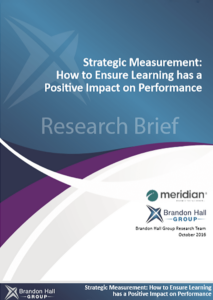The 5 Benefits of Lifelong Learning
In a 2020 report, the Pew Research Center found that 73% of American adults consider themselves “lifelong learners,” meaning they seek out learning activities in their personal or professional lives). These learning activities take many forms, from online seminars and courses through hands-on workshops and classes, from TED talks to self-study.
73% of American adults consider themselves “lifelong learners”
There are many reasons people dedicate their time to increasing their knowledge, both personal and professional, and learning beyond the traditional school years has countless benefits. For the learner focused on their professional life, among these benefits are:
Maintaining and improving skills
Most professionals who dedicate time to continued learning do so to maintain and improve the skills on which their jobs depend. For instance, those who are in their organization’s IT department and need to fix laptops (both the hardware and the software) often learn about the nitty-gritty of securing computers with different operating systems, including Mac and Linux, primarily because this makes them more skilled.
Of those interviewed by Pew, 63% cited their job as the reason for their continued focus on learning. In the past 12 months, they have taken a course or gotten additional training to improve their skills.
No matter what job you have, you can always get better at it. No limits exist to how much you can learn and where to stop. For example, you might have already become a firefighter. Still, you could always take up many other courses that are available offline or online to expand your skills and expertise.
Licensing and certification
36% of professionals who engaged in learning activities in the last year said they did so to get a license or certification. In many areas, achieving and maintaining various licenses and certifications is essential to keeping jobs and growing your career. For instance, if professionals in the marketing industry take courses focusing on Google Analytics or Adwords, they may have to pass all possible GA4 exam questions and exams to receive certification. Only then will they be able to add it to their resumes and achieve their desired growth? No matter what industry a professional works in, the same applies.
Raises and promotions
24% of professional learners said they continue their education to work toward raises and promotions in their current jobs. For example, it is common for people working in the mental health field to take up NDIS courses or other similar programs to get higher-level jobs, which would also include a salary raise.
Job mobility
Not every job is the right job. Some professional learners further train themselves to make themselves better candidates for new positions. 24% of those who learned in the last year stated this as their reason.
Job retention
13% of professionals who engaged in continued learning did it as insurance, wanting to keep their skills marketable for possible downsizing.
Just as committing time and effort to continued learning is a smart investment for employees, making learning available and accessible is a wise move for employers. For employers and employees, focusing on lifelong learning requires commitment, resources, energy, and money. Technological advances allow for unprecedented flexibility in providing and accessing learning opportunities and planning and managing your individual learning trajectory. It is now easier than ever to commit to lifelong learning and realize its many benefits.
Download the report on Strategic Measurement from Brandon Hall Group for tips and tricks from the learning measurement strategies of high-performing organizations.
